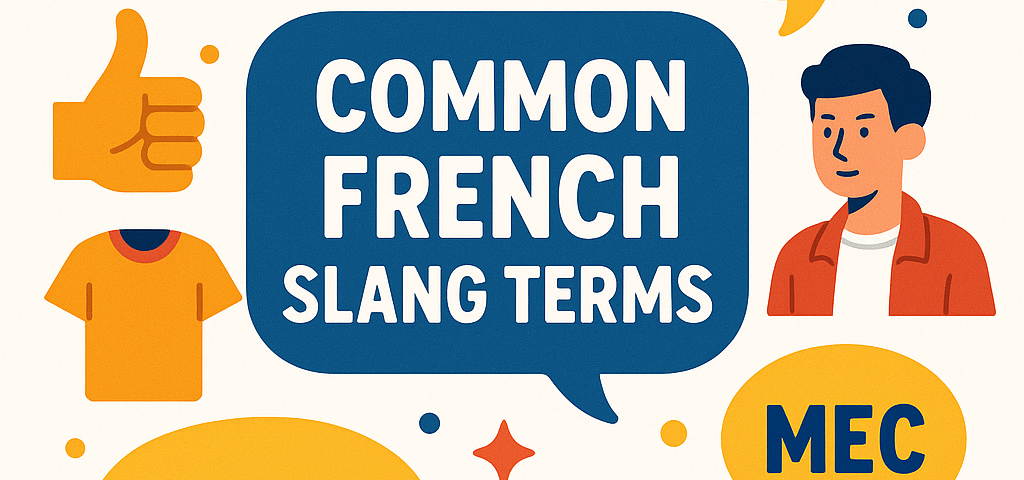
Unpacking the Layers of French Idiomatic Expressions: A New Perspective
June 12, 2025
Exploring the Nuances of Advanced French Vocabulary: Empowering Students Through Semantic Precision
June 12, 2025Understanding and using common French slang terms is crucial for students learning French, as these expressions capture the nuances and cultural contexts that formal language often misses. This deep dive into French slang not only enriches communication but also promotes confidence in social interactions, a critical factor for mastering the language. At LearnFrenchTutor (LFT), our mission as a quick French tutor for students involves providing tools that elevate your mastery of the language, including informal expressions that native speakers use daily.
The Importance of Learning Slang
Learning French slang helps bridge the gap between formal education and real-life communication. Knowing how to use slang correctly enables learners to engage meaningfully with native speakers and understand French media and literature on a deeper level.
- Slang usage reflects social context, allowing learners to understand regional and cultural variations.
- Mastering slang can increase comprehension of idioms and humor often present in conversations.
- Incorporating slang into conversations enhances social bonding and relatability among peers.
Regional Variations in French Slang
French slang varies from region to region, reflecting the local culture and lifestyle. Students can benefit from exploring these regional differences to better understand the diversity within the language.
- In Paris, terms like “bobo” (bourgeois-bohemian) highlight a particular class and lifestyle.
- In southern France, expressions such as “kif-kif” (same difference) showcase local dialect influences.
- In Canada, slang like “tabarnak” signifies cultural heritage rooted in Quebec French.
Incorporating Slang into Daily Conversations
Integrating slang into everyday conversations can significantly elevate language skills. Students should practice using informal terms in controlled settings before applying them in real-life interactions.
- Engage with native speakers through language exchange programs to practice slang in context.
- Utilize social media platforms to immerse in authentic slang-heavy content.
- Participate in French-speaking clubs where casual conversation prevails.
Challenges of Using Slang Correctly
While learning slang adds color to conversations, it can understandably come with challenges. Students need to be aware of contexts in which certain terms are appropriate or offensive.
- Different generations may use slang differently, highlighting the importance of knowing your audience.
- Cultural nuances can make some slang terms more sensitive; context matters significantly.
- Misuse of slang can lead to misunderstandings, making it crucial for learners to study context carefully.
Continuous Learning: Resources and Tools
Students interested in mastering French slang should seek out relevant resources and tools designed for effective learning.
- Podcasts and YouTube channels focusing on contemporary French culture often highlight slang.
- Mobile apps offer slang dictionaries and real-life example sentences for learners.
- Books that specialize in French colloquial language can serve as excellent supplementary resources.
In summary, mastering French slang is an indispensable part of achieving fluency and confidence in speaking. The strategic use of slang can foster a sense of connection with native speakers—making communication not only practical but also genuine. Join LearnFrenchTutor (LFT)—your quick French tutor for students—to expand your knowledge and engage deeply with the vibrant French culture.

